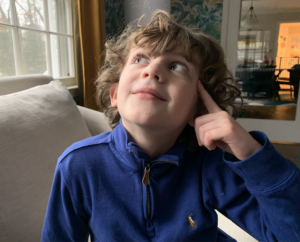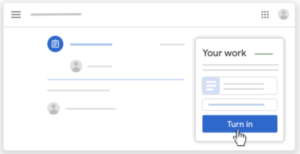 While typically I would want to wait between blog posts, this is one that we are all experiencing now and could shed so much light on how your kids are doing in school or why they are doing certain things in school (or maybe all good in your hood and it doesn’t apply to you?). Executive Functions in a Pandemic … this specific topic could have an entire novel written about it. I have been in public schools during the shift to remote, to hybrid (rotating of remote/in person or modified hours) to full time back in person. There were two major movements that took place but for the purpose of this blog post, I am going to focus on the movement back to in person full time. The first thing to take into consideration is that your child is not the same student they were 2 years ago. Let that sink in. For example: I was at a 6th grade dance in which a number of students ended the night crying (the crush didn’t’ dance with her, she didn’t get a glow stick, they called me stinky). A colleague commented that it was a disaster which I pointed out that it was GREAT! Current 6th graders have not been in school since the middle of fourth grade. These students are socially 4th graders! How can we expect them to know how to function at a school event since there has not been one for them like this in two years. While we know there have been social implications, the impacts on executive functions is one that I am constantly reminding other parents of.
While typically I would want to wait between blog posts, this is one that we are all experiencing now and could shed so much light on how your kids are doing in school or why they are doing certain things in school (or maybe all good in your hood and it doesn’t apply to you?). Executive Functions in a Pandemic … this specific topic could have an entire novel written about it. I have been in public schools during the shift to remote, to hybrid (rotating of remote/in person or modified hours) to full time back in person. There were two major movements that took place but for the purpose of this blog post, I am going to focus on the movement back to in person full time. The first thing to take into consideration is that your child is not the same student they were 2 years ago. Let that sink in. For example: I was at a 6th grade dance in which a number of students ended the night crying (the crush didn’t’ dance with her, she didn’t get a glow stick, they called me stinky). A colleague commented that it was a disaster which I pointed out that it was GREAT! Current 6th graders have not been in school since the middle of fourth grade. These students are socially 4th graders! How can we expect them to know how to function at a school event since there has not been one for them like this in two years. While we know there have been social implications, the impacts on executive functions is one that I am constantly reminding other parents of.
Years ago when I was a student, my teacher had an inbox. When we completed a classwork assignment, we would stand up, walk over to the inbox and turn it in. Such a simple task. Putting a piece of paper into a basket. Easy, right? Well, before doing that there were a few things that had to happen.
- I had to have completed the work (most likely independently) and stay on task to complete within the allotted time by the teacher.
- I would have to remember that it was my responsibility to put it in that basket.
- If step 2 failed, I had the social cues around me of others getting up to turn in their work.
At some point in the day my teacher would do a mass hand out of work where she (and maybe a class helper) would walk around handing work back in which we would take the work and file it into the subject specific folders. <This is a whole other can of worms that I will go into another day.>
Today, students are back in schools with common themes; not completing their classwork, turning work in late, turning work in without their name, lacking to read social cues or scan their environment. Why? Because for a year and a half, they have been submitting their work via Google Classroom or Canvas. A simple click of a button (which took them a year to learn to use to begin with). They just clicked “Turn In” and that was it (photo cred to Google). If work was missing, teachers were giving them reminders that items were outstanding (shout out to the teachers who were desperately trying to engage with students and support them during remote learning).  Now picture Sally, she is back in school, she has her homework in her backpack and the teacher briefly mentions to turn it in before they leave class that day. Sally, who is now focused on the lesson, does not have the reminder poking at her to turn in the piece of paper, a skill she has not utilized in over a year and a half. Her classmates are in the same boat. Even if she saw someone turn their work in, she has not been conditioned to draw the conclusion from it that she may too have something to do. This is like when you get to the grocery store, see other shoppers with their masks on and run back to your car to grab the one you forgot. You scanned your environment. You read the social cues of the glaring eyes that someone can see your mouth. You knew there was an action step for you to take. Poor Sally has no clue. She sees the action of the classmate and it does not have a meaning for her. It is not until it is posted online what her grade was for the assignment, a zero, that Sally tells her parents that she did the homework and is even able to pull it out of her bag to show them. <Cue concerned parents>
Now picture Sally, she is back in school, she has her homework in her backpack and the teacher briefly mentions to turn it in before they leave class that day. Sally, who is now focused on the lesson, does not have the reminder poking at her to turn in the piece of paper, a skill she has not utilized in over a year and a half. Her classmates are in the same boat. Even if she saw someone turn their work in, she has not been conditioned to draw the conclusion from it that she may too have something to do. This is like when you get to the grocery store, see other shoppers with their masks on and run back to your car to grab the one you forgot. You scanned your environment. You read the social cues of the glaring eyes that someone can see your mouth. You knew there was an action step for you to take. Poor Sally has no clue. She sees the action of the classmate and it does not have a meaning for her. It is not until it is posted online what her grade was for the assignment, a zero, that Sally tells her parents that she did the homework and is even able to pull it out of her bag to show them. <Cue concerned parents>
We have to go backwards and start at the beginning again. I look at current 8th graders who can not figure out how to utilize their locker. They can not figure out the locks or plan out when they will be able to go back to it again or what should be kept in it. These are kids we are preparing for high school! The lapse of time has had an impact and it is (or should be) signaling parents and teachers that we need to go back to the beginning of routines and the executive functioning skills around these tasks.
Ok, Dani, so what can I do about this at home?
Create a System
I like having a simple pocket folder where one side says “Not Done” and the other says “Done”. All homework, every day, gets put into this folder at school and when your child comes home you will know what work needs to be completed and what has been done.

*Folder above is from Amazon and can be found here.
- When your child comes home, explain (ONCE) that the homework folder goes on the kitchen table. (Each day after that you can refer to a list that reflects this or you can ask them what steps they need to do when they get home so that way they are learning this routine and not relying on your prompting).
- Sitting with them, have them open the folder and make a list of what needs to be completed (this is like teaching the skill of writing down your homework but reversing it to happen at home – it will happen at school when the time is right).
- As they complete each assignment, have them cross it off the list. (You are working it into their brain that the HAD homework and that they COMPLETED it)
- All completed work now goes in the DONE side of the folder and the folder should then be returned to the backpack. (Again, this can be reflected in a list or reviewed a first time and then different prompting from there until the system is embedded into their practice.
The next morning I like to discuss what they should be doing upon arrival to class, step one will always be to TAKE OUT THE HOMEWORK FOLDER no matter if there was homework the night before or not. This will be a few conversations at home and then inquiring from your child what they have been doing. If you find that they are struggling with this, you can email the teacher and ask if they have been doing it independently – and if they are not – ask the teacher if they would mind prompting your child. Coming soon as a blog will be communication with teachers.
was homework the night before or not. This will be a few conversations at home and then inquiring from your child what they have been doing. If you find that they are struggling with this, you can email the teacher and ask if they have been doing it independently – and if they are not – ask the teacher if they would mind prompting your child. Coming soon as a blog will be communication with teachers.
* This is the folder that my son has for first grade. The teacher started this with him and I carry through the steps at home.

Leave A Comment